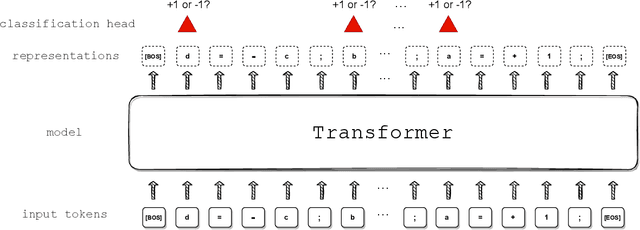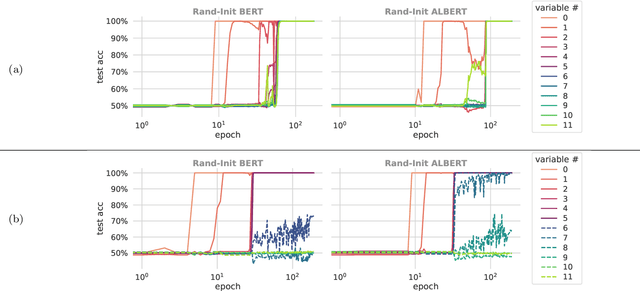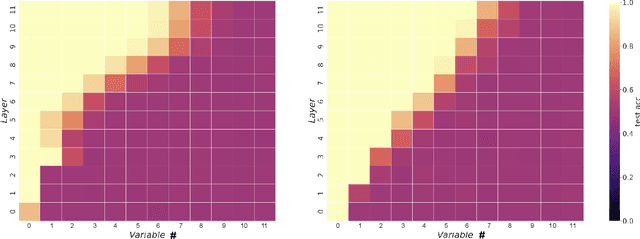Unveiling Transformers with LEGO: a synthetic reasoning task
Paper and Code
Jun 09, 2022



We propose a synthetic task, LEGO (Learning Equality and Group Operations), that encapsulates the problem of following a chain of reasoning, and we study how the transformer architecture learns this task. We pay special attention to data effects such as pretraining (on seemingly unrelated NLP tasks) and dataset composition (e.g., differing chain length at training and test time), as well as architectural variants such as weight-tied layers or adding convolutional components. We study how the trained models eventually succeed at the task, and in particular, we are able to understand (to some extent) some of the attention heads as well as how the information flows in the network. Based on these observations we propose a hypothesis that here pretraining helps merely due to being a smart initialization rather than some deep knowledge stored in the network. We also observe that in some data regime the trained transformer finds "shortcut" solutions to follow the chain of reasoning, which impedes the model's ability to generalize to simple variants of the main task, and moreover we find that one can prevent such shortcut with appropriate architecture modification or careful data preparation. Motivated by our findings, we begin to explore the task of learning to execute C programs, where a convolutional modification to transformers, namely adding convolutional structures in the key/query/value maps, shows an encouraging edge.
 Add to Chrome
Add to Chrome Add to Firefox
Add to Firefox Add to Edge
Add to Edge